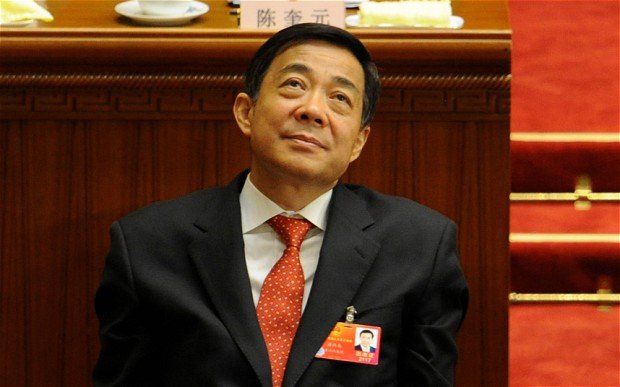Chinese parliament has formally expelled disgraced politician Bo Xilai from the top legislature, state media has announced.
The move strips the ex-Chongqing party leader of immunity from prosecution.
Bo Xilai was expelled from the Communist Party last month. State media said he was accused of abuse of power, bribe-taking and violating party discipline.
His wife, Gu Kailai, was jailed in August for the murder of British businessman Neil Heywood.
Bo Xilai’s former deputy, police chief Wang Lijun, has also been jailed in connection with the scandal, which came as China prepared for its 10-yearly power transition.
Legislators are due to meet on 8 November for a Congress at which the new top leaders will be unveiled.
The move to strip Bo Xilai of his last official position had been expected.
“The Standing Committee of the 11th National People’s Congress (NPC) on Friday announced the termination of Bo Xilai’s post as the NPC deputy,” said the brief statement from Xinhua news agency.
The action means that a criminal case against Bo Xilai – a former high-flier once tipped for the top echelons of power – can move ahead.
When he was expelled from the party last month, a statement said his “suspected law violations” would be transferred to “judicial organs”. A timescale for this process and any subsequent trial have not been announced.
Bo Xilai has not been seen in public since the investigation into him and his family was announced.
On Thursday the Washington Post, citing two people close to his wife’s family, said his relatives had been warned not to hire lawyers for him.
The investigation into Bo Xilai was triggered when Wang Lijun fled to the US consulate in Chongqing and implicated Bo’s wife, Gu Kailai, in the death of Neil Heywood.
Gu Kailai was subsequently given a suspended death sentence for his murder after a one-day trial. Wang Lijun has been jailed for 15 years on a number of charges.
Bo Xilai had been seen as a leading candidate for a position in the party’s top decision-making body – the Standing Committee of the politburo – in the leadership change set for next month.
A charismatic lawmaker, his populist policies, crackdown on crime and promotion of “red” culture – harking back to the Mao Zedong era – brought him supporters.
His downfall was seen as exposing divisions between more reformist and more left-leaning groupings among China’s top leaders.
